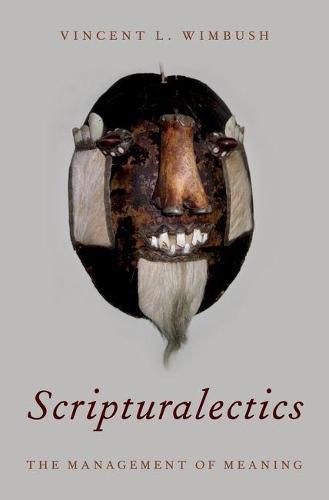Readings Newsletter
Become a Readings Member to make your shopping experience even easier.
Sign in or sign up for free!
You’re not far away from qualifying for FREE standard shipping within Australia
You’ve qualified for FREE standard shipping within Australia
The cart is loading…






In this book ,Vincent Wimbush seeks to problematize what we call scriptures, a word first used to refer simply to things written, the registration of basic information. In the modern world the word came to be associated almost exclusively with the center- and power-defining sacred texts of world religions. Wimbush argues that this narrowing of the valence of the term was a decisive development for western culture. His purpose is to reconsider the initially broad and politically charged use of the term. Scriptures are excavated not merely as texts to be read but understood as discourse: as mimetic rituals and practices, as ideologically-charged orientations to and prescribed behaviors in the world, as structures of relationships and social formations, as forms of communication. Wimbush is naming and constructing a new transdisciplinary critical project, which uses the historical and modern experiences of the Black Atlantic as resources for framing, categorization, and analysis. Using Chinua Achebe’s novel Things Fall Apart as a touchstone, each chapter offers a close reading and analysis of a representative moment in the formation of the Black Atlantic, regarded as part of a history of modern human consciousness and conscientization. Such a history, Wimbush says, is reflected in the major turns in what he calls scripturalectics, part of the construction of the modern world, defined as efforts to manage or control knowledge and meaning.
$9.00 standard shipping within Australia
FREE standard shipping within Australia for orders over $100.00
Express & International shipping calculated at checkout
In this book ,Vincent Wimbush seeks to problematize what we call scriptures, a word first used to refer simply to things written, the registration of basic information. In the modern world the word came to be associated almost exclusively with the center- and power-defining sacred texts of world religions. Wimbush argues that this narrowing of the valence of the term was a decisive development for western culture. His purpose is to reconsider the initially broad and politically charged use of the term. Scriptures are excavated not merely as texts to be read but understood as discourse: as mimetic rituals and practices, as ideologically-charged orientations to and prescribed behaviors in the world, as structures of relationships and social formations, as forms of communication. Wimbush is naming and constructing a new transdisciplinary critical project, which uses the historical and modern experiences of the Black Atlantic as resources for framing, categorization, and analysis. Using Chinua Achebe’s novel Things Fall Apart as a touchstone, each chapter offers a close reading and analysis of a representative moment in the formation of the Black Atlantic, regarded as part of a history of modern human consciousness and conscientization. Such a history, Wimbush says, is reflected in the major turns in what he calls scripturalectics, part of the construction of the modern world, defined as efforts to manage or control knowledge and meaning.